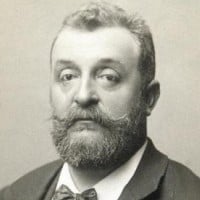Top Ten Most Influential Figures in Nationalism
This is not a praise list, just a list about influential figures in history, but not praise.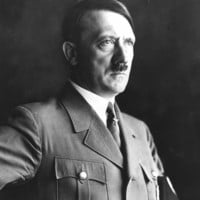 Adolf Hitler (April 20, 1889 - April 30, 1945) was a German politician of Austrian descent who served as the leader of the Nazi Party since 1921, Chancellor of Germany since 1933, and Führer of Nazi Germany since 1934. As dictator of Nazi Germany, he reversed the Treaty of Versailles, initiated World... read more
Adolf Hitler (April 20, 1889 - April 30, 1945) was a German politician of Austrian descent who served as the leader of the Nazi Party since 1921, Chancellor of Germany since 1933, and Führer of Nazi Germany since 1934. As dictator of Nazi Germany, he reversed the Treaty of Versailles, initiated World... read more One of the most evil people on the list. Nazi means National Socialist, they used Nationalism and non-Marxist socialism to gain power. He is why the term nationalist gets a lot of flak. He is a supremacist nationalist or chauvinist which is the idea of superior race and nation. Plain Nationalism is just prioritizing your country first.
Watch this Documentary called The Greatest story never told
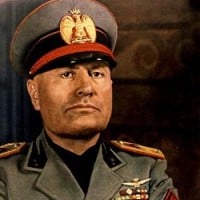 Benito Amilcare Andrea Mussolini was an Italian politician, journalist, and leader of the National Fascist Party, ruling the country as Prime Minister from 1922 until he was ousted in 1943. He ruled constitutionally until 1925, when he dropped all pretense of democracy and set up a legal dictatorship... read more
Benito Amilcare Andrea Mussolini was an Italian politician, journalist, and leader of the National Fascist Party, ruling the country as Prime Minister from 1922 until he was ousted in 1943. He ruled constitutionally until 1925, when he dropped all pretense of democracy and set up a legal dictatorship... read more Again, another horrible person, but you can not deny his historical significance. Mussolini and Italy are the original fascists. Fascism at the time was the alternate to Marxian socialism and Capitalism.
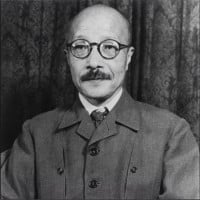 Hideki Tōjō was a general of the Imperial Japanese Army, the leader of the Imperial Rule Assistance Association, and the 27th Prime Minister of Japan during much of World War II, from October 17, 1941, to July 22, 1944. As Prime Minister, he was responsible for ordering the attack on Pearl Harbor,... read more
Hideki Tōjō was a general of the Imperial Japanese Army, the leader of the Imperial Rule Assistance Association, and the 27th Prime Minister of Japan during much of World War II, from October 17, 1941, to July 22, 1944. As Prime Minister, he was responsible for ordering the attack on Pearl Harbor,... read more Fidel Alejandro Castro Ruz, known as Fidel Castro (August 13, 1926 – November 25, 2016), was a Cuban politician and revolutionary who governed the Republic of Cuba as Prime Minister from 1959 to 1976 and then as President from 1976 to 2008. Politically a Marxist–Leninist and Cuban nationalist, he... read more
Fidel Alejandro Castro Ruz, known as Fidel Castro (August 13, 1926 – November 25, 2016), was a Cuban politician and revolutionary who governed the Republic of Cuba as Prime Minister from 1959 to 1976 and then as President from 1976 to 2008. Politically a Marxist–Leninist and Cuban nationalist, he... read more Ideologically a Marxist–Leninist and Cuban nationalist, he also served as the First Secretary of the Communist Party of Cuba from 1961 until 2011. Fidel was a major figure in National Liberation which most left wing nationalists were a part of in the 20th century.
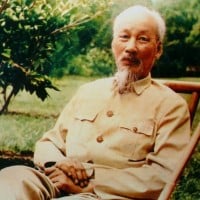 Hồ Chí Minh, was a Vietnamese Communist revolutionary leader who was Chairman and First Secretary of the Workers' Party of Vietnam.
Hồ Chí Minh, was a Vietnamese Communist revolutionary leader who was Chairman and First Secretary of the Workers' Party of Vietnam. Uncle Ho!
He really did have the best ideas, and if you didn't agree, he killed you.
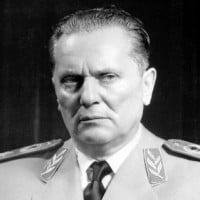 Josip Broz (7 May 1892, Kumrovec – 4 May 1980, Ljubljana), commonly known as Tito, was a Yugoslav communist revolutionary and statesman, serving in various roles until his death in 1980. During World War II he was the leader of the Partisans, often regarded as the most effective resistance movement... read more
Josip Broz (7 May 1892, Kumrovec – 4 May 1980, Ljubljana), commonly known as Tito, was a Yugoslav communist revolutionary and statesman, serving in various roles until his death in 1980. During World War II he was the leader of the Partisans, often regarded as the most effective resistance movement... read more Mao Zedong, also transliterated as Mao Tse-tung and commonly referred to as Chairman Mao, was a Chinese communist revolutionary and founding father of the People's Republic of China, which he governed as Chairman of the Communist Party of China from its establishment in 1949, until his death in 1976... read more
Mao Zedong, also transliterated as Mao Tse-tung and commonly referred to as Chairman Mao, was a Chinese communist revolutionary and founding father of the People's Republic of China, which he governed as Chairman of the Communist Party of China from its establishment in 1949, until his death in 1976... read more Another brutal historical figure. While he fought the Chinese Nationalists led by Chiang Kai Shek, Mao was also a nationalist, but with communist economics. In other words, the Chinese civil war was a war between two nationalist figures. Mao along with other leaders on this list are proof that while nationalism is popular among right wingers, it is not rare to find it with the left either, it is just usually in the east.
 Robert Gabriel Mugabe (21 February 1924 – 6 September 2019) was a Zimbabwean revolutionary and politician who served as Prime Minister of Zimbabwe from 1980 to 1987 and then as President from 1987 to 2017. He served as Leader of the Zimbabwe African National Union (ZANU) from 1975 to 1980 and led... read more
Robert Gabriel Mugabe (21 February 1924 – 6 September 2019) was a Zimbabwean revolutionary and politician who served as Prime Minister of Zimbabwe from 1980 to 1987 and then as President from 1987 to 2017. He served as Leader of the Zimbabwe African National Union (ZANU) from 1975 to 1980 and led... read more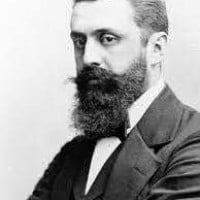
(1860–1904), Jewish Austrian-Hungarian journalist, playwright, writer, and political activist. He founded the political form of Zionism, a movement to build a Jewish homeland in Palestine.
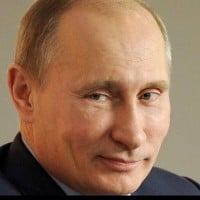 Vladimir Vladimirovich Putin (born 7 October 1952) is a Russian politician and former intelligence officer who is the president of Russia, a position he has filled since 2012, and previously from 2000 until 2008. He was also the prime minister from 1999 to 2000, and again from 2008 to 2012... read more
Vladimir Vladimirovich Putin (born 7 October 1952) is a Russian politician and former intelligence officer who is the president of Russia, a position he has filled since 2012, and previously from 2000 until 2008. He was also the prime minister from 1999 to 2000, and again from 2008 to 2012... read more The one who added Putin in this list is certainly has no any idea who Putin is and how Putin's Russia works.
In fact, Putin has banned all Russian nationalism. It is no secret that the national question is acute in Russia. The percentage of so-called "ethnic" crimes committed by representatives of non-Russian nationalities is very high. It is forbidden to talk about this in the media behind the scenes. Any criticism of the national issue is prohibited and punishable by law in accordance with the notorious article 282 of the Russian Criminal Code, the so-called "Russian Article" (because in fact it only applies to Russians). A very large part of the criminal prosecution for comments on the Internet, likes and reposts (yes, that's how Putin's Russia works) falls on the violation of this article. At the same time, representatives of these national minorities (which I deliberately do not name) can talk absolutely everything about Russians, without fear of any punishment, for example, call on to kill "Russian pigs". This is not punishable.
Hail to this great nationalist!
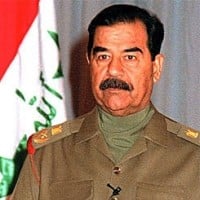 Saddam Hussein Abd al-Majid al-Tikriti was the fifth President of Iraq, serving in this capacity from 16 July 1979 until 9 April 2003. A leading member of the revolutionary Arab Socialist Ba'ath Party, and later, the Baghdad-based Ba'ath Party and its regional organization Ba'ath Party – Iraq Region—which... read more
Saddam Hussein Abd al-Majid al-Tikriti was the fifth President of Iraq, serving in this capacity from 16 July 1979 until 9 April 2003. A leading member of the revolutionary Arab Socialist Ba'ath Party, and later, the Baghdad-based Ba'ath Party and its regional organization Ba'ath Party – Iraq Region—which... read more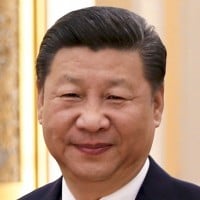 Xi Jinping is a Chinese politician currently serving as General Secretary of the Communist Party of China, President of the People's Republic of China, and Chairman of the Central Military Commission.
Xi Jinping is a Chinese politician currently serving as General Secretary of the Communist Party of China, President of the People's Republic of China, and Chairman of the Central Military Commission. China's other major nationalist leader along Mao and Deng. Xi is the other leader like Putin that obtains support from many nationalists. He has even called on Chinese youth to embrace Chinese nationalism.
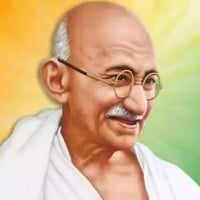 Mohandas Karamchand Gandhi was the preeminent leader of the Indian independence movement in British-ruled India.
Mohandas Karamchand Gandhi was the preeminent leader of the Indian independence movement in British-ruled India.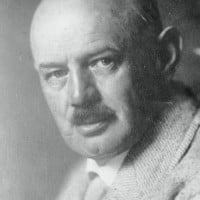
(1868–1923), German poet, playwright, journalist, and political activist. In 1919, Eckart was one of the founders of the DAP, which became the NSDAP in 1920. From 1921 to 1923, he was the chief editor of the party newspaper "Völkischer Beobachter". He was Adolf Hitler's first political mentor.
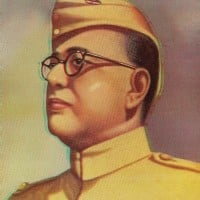 Subhas Chandra Bose, was an Indian nationalist whose defiant patriotism made him a hero in India, but whose attempt during World War II to rid India of British rule with the help of Nazi Germany and Imperial Japan left a troubled legacy.
Subhas Chandra Bose, was an Indian nationalist whose defiant patriotism made him a hero in India, but whose attempt during World War II to rid India of British rule with the help of Nazi Germany and Imperial Japan left a troubled legacy.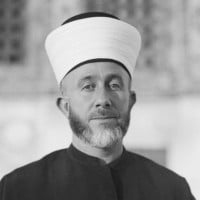
(Died 1974), Grand Mufti of Jerusalem and Arab nationalist who played a key role in Arab resistance to Zionism. During his meeting with Hitler in 1941, he assured that the Arabs "were Germany's natural friends because they had the same enemies as had Germany, namely the English, the Jews, and the Communists".
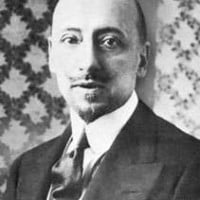
(1863–1938), the leading Italian writer in the late 19th and early 20th centuries. On 12 September 1919, he occupied with a force of Italian nationalist irregulars the city of Fiume. On 8 September 1920, he proclaimed the birth of the "Reggenza Italiana del Carnaro" (Regency of Carnaro) with himself as "Comandante" (Commander). At the end of December, he surrendered the city to the Italian Navy. The proto-fascist constitution and his style of leadership inspired Benito Mussolini, who adopted the balcony address and the Roman salute.
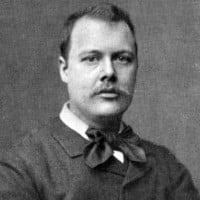
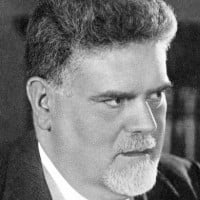
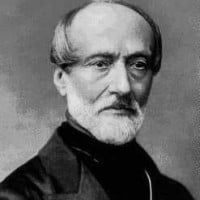
(1805–1872), Italian journalist and political activist, a champion of the movement for Italian unity known as the Risorgimento.
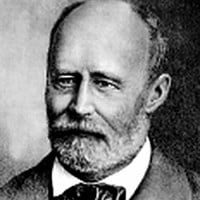
(1827–1891), a noted German orientalist. He promoted anti-Semitism and anti-Slavism and called for a German national religion. His ideas were highly influential on Nazi ideologist Alfred Rosenberg. Hitler studied his "Deutsche Schriften" (German Essays) thoroughly in the 1930s.
 Benjamin "Bibi" Netanyahu is an Israeli politician serving as the 9th and current Prime Minister of Israel since 2009, previously holding the position from 1996 to 1999.
Benjamin "Bibi" Netanyahu is an Israeli politician serving as the 9th and current Prime Minister of Israel since 2009, previously holding the position from 1996 to 1999.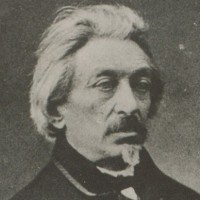
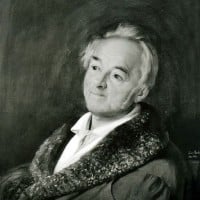
(1769–1860), German historian, writer, and poet. One of the main founders of German nationalism and a committed opponent of Napoleonic dominance over Germany. His anti-French statements were used in both World Wars.
